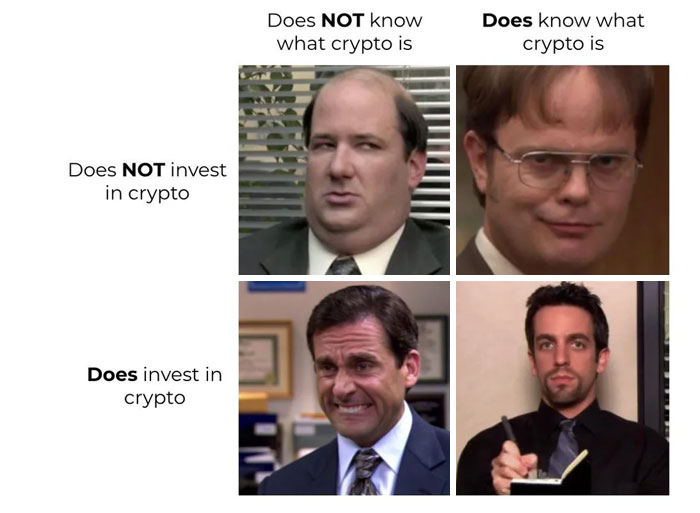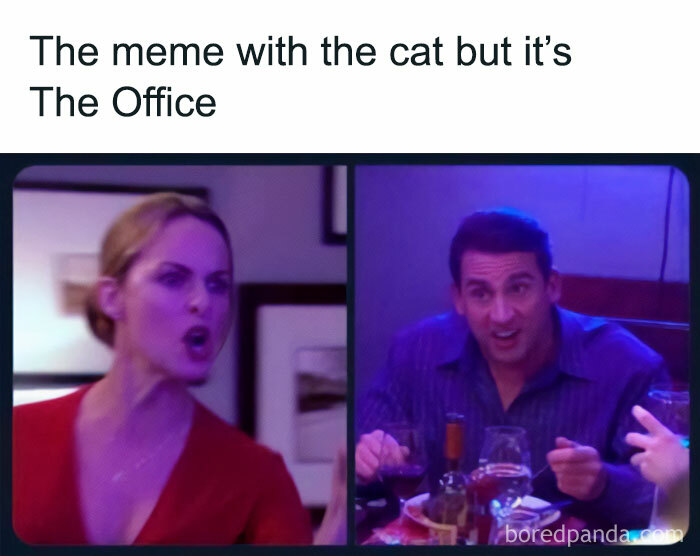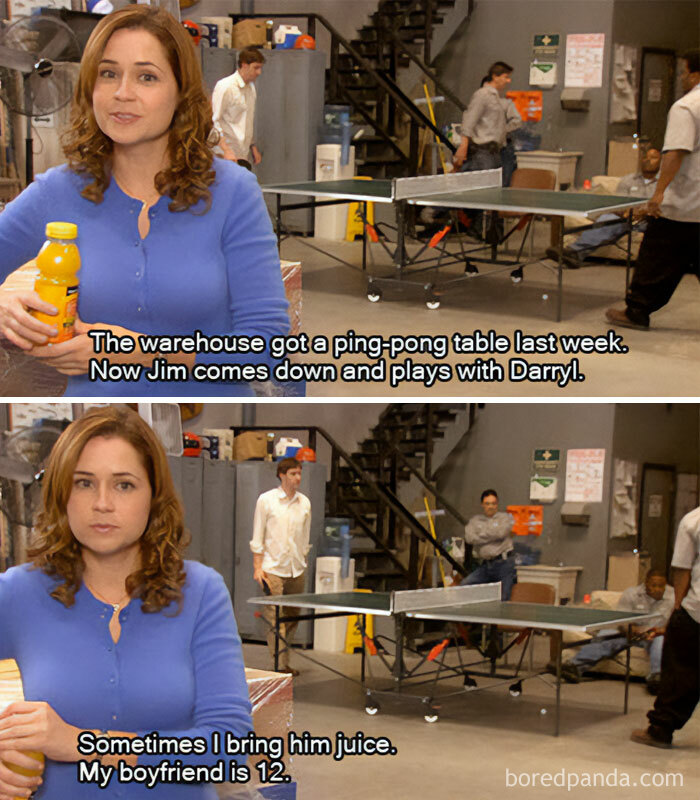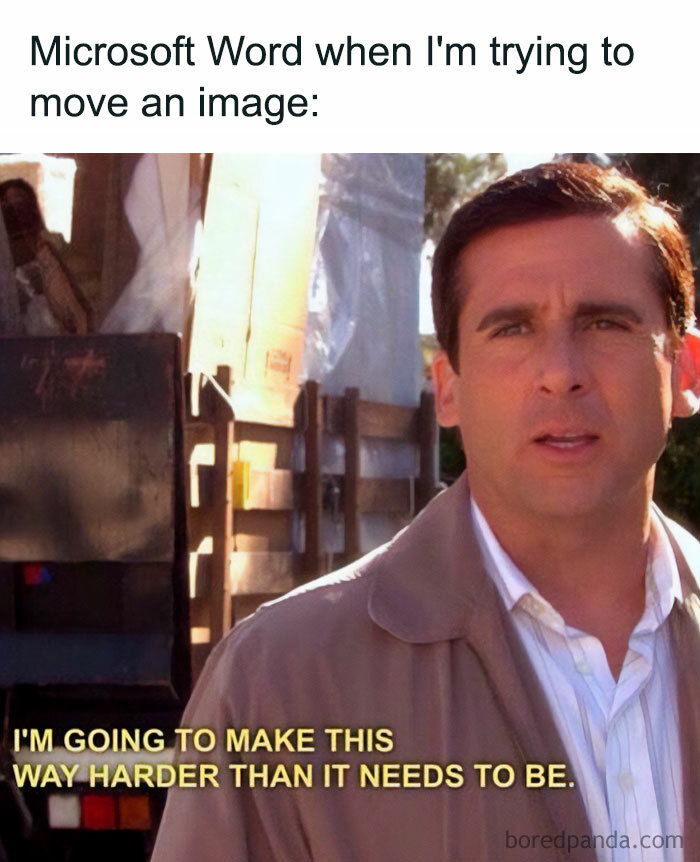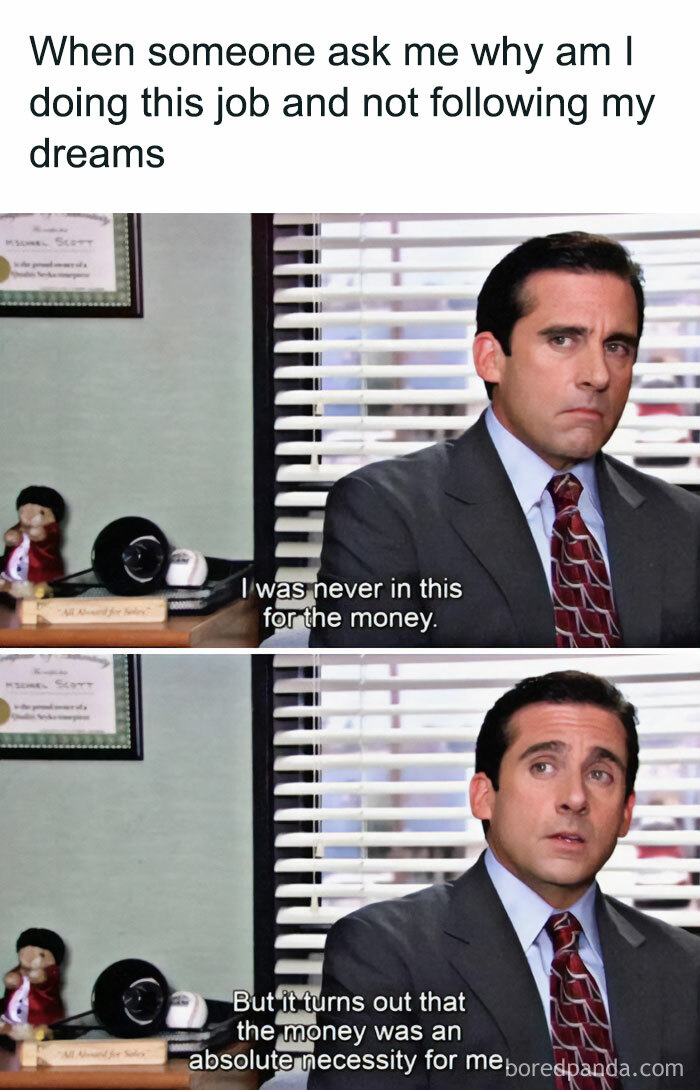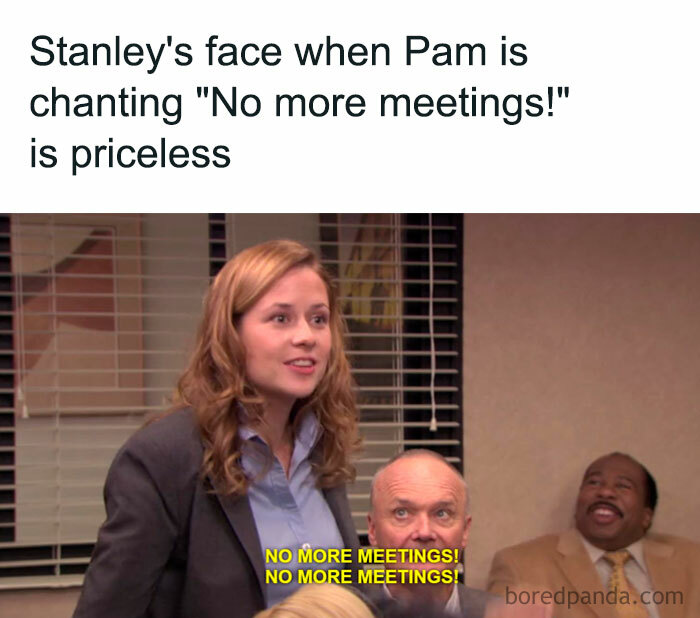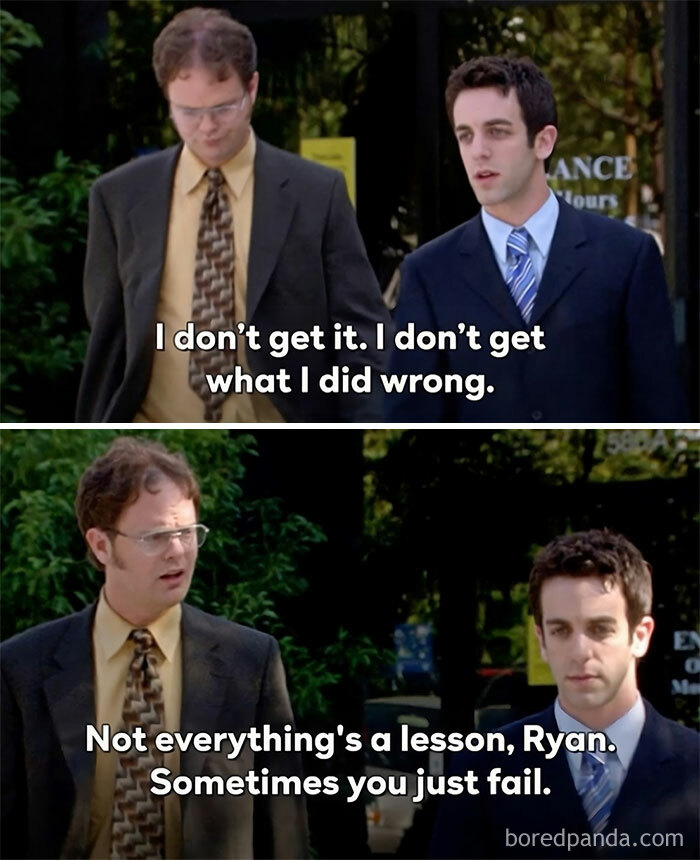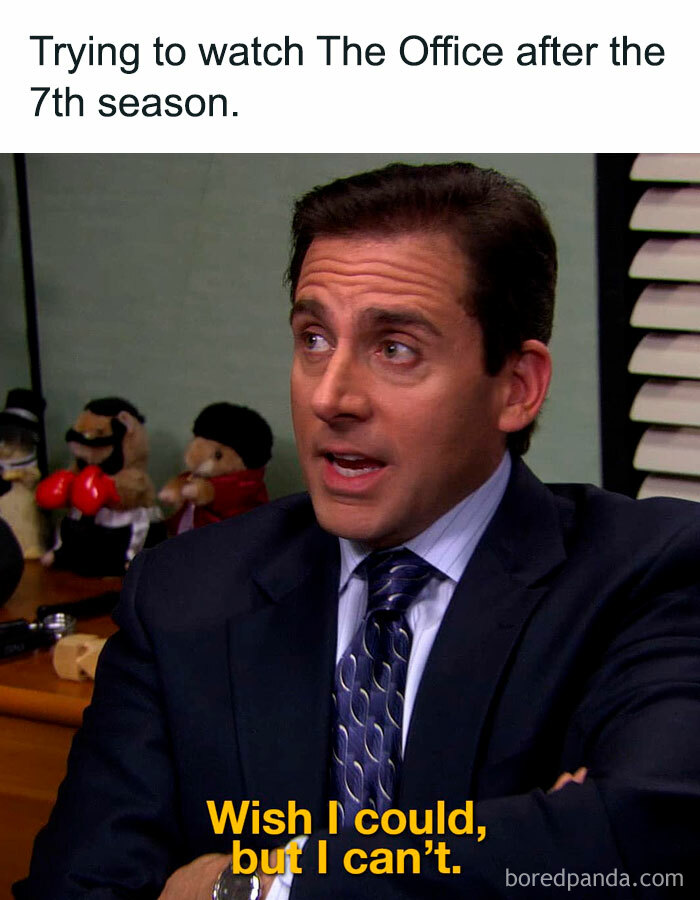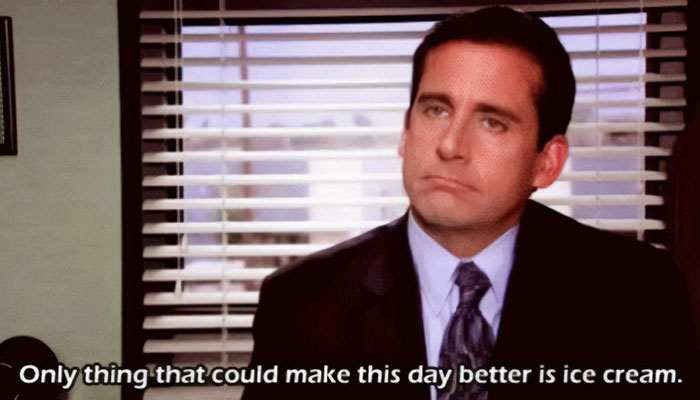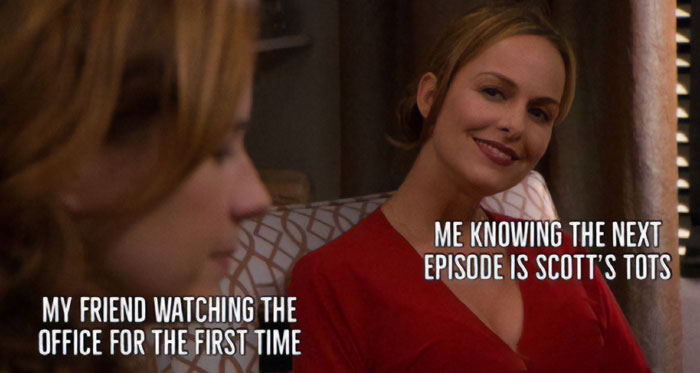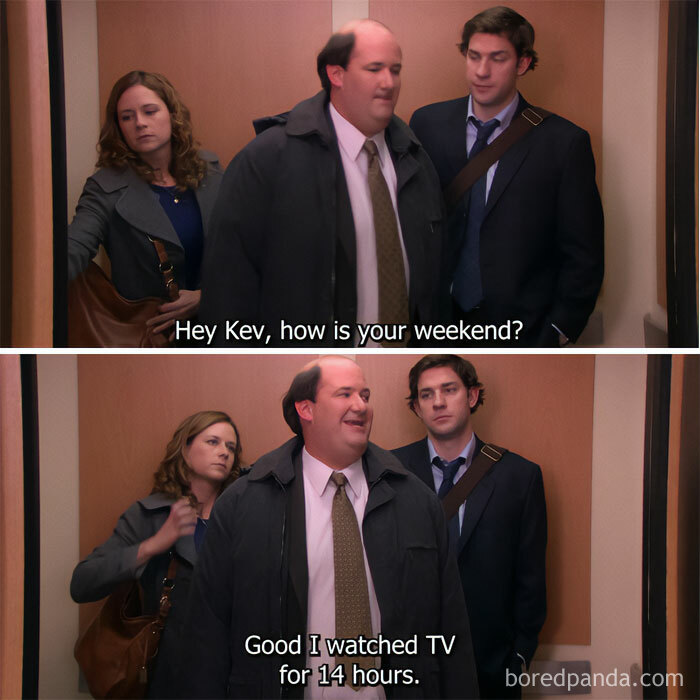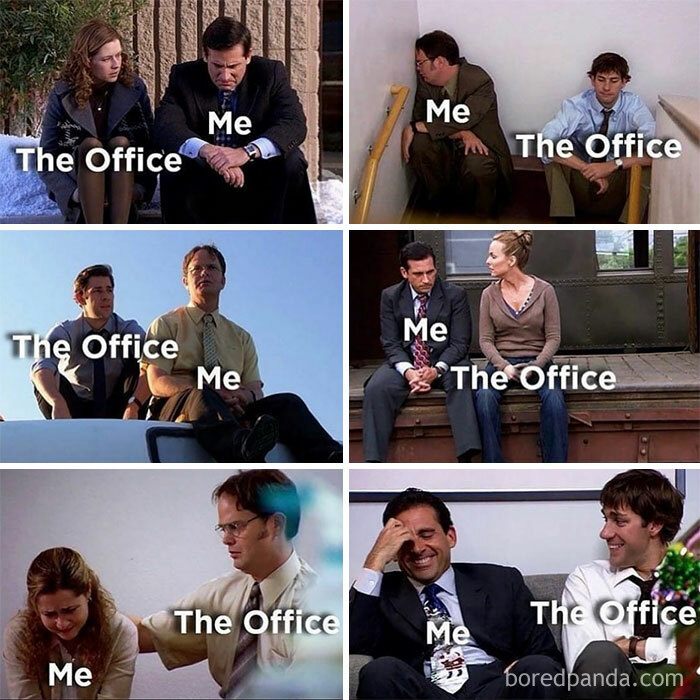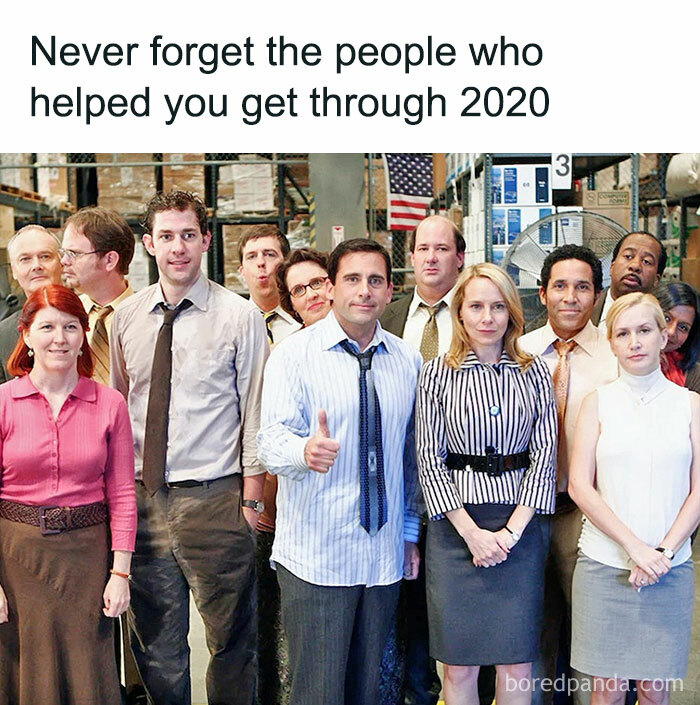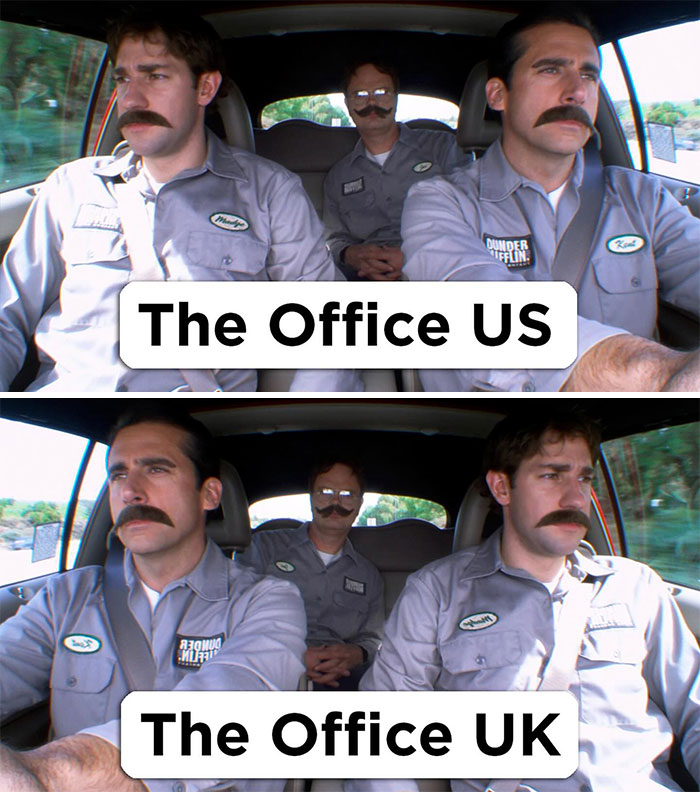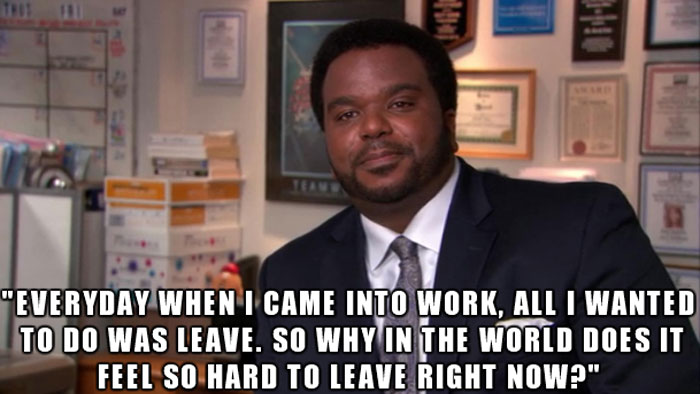Psychology Today’s Justin Gregg, in a 2022 feature, said that the ordinariness of The Office setting compared to an objectively attractive location (like a virtual afterlife metaverse) means their viewers can focus more on the characters and people, their motivations, their fears, and their dreams (1). Since The Office moves its story along the evolution of characters more than outside challenges, Gregg explains that human minds are naturally designed for and hyper-focused on telling and receiving stories about people. The Office characters grow on us because we see them as somebody like us — bare, triggered, and familiar. The hilarity of each character is just a lovely bonus. In the 2020 Vox article, Emily St. James draws the difference by pitting the British original against the American series, saying the latter uses a reality television format that is more immediately recognizable and attuned to the sorts of documentary style the original series emulates (2). The reality show style comes to life in the close crops and midshots — with characters looking right at the camera. These talking heads make the emotions and sentiments more relatable, akin to confessionals from reality shows, except in a workplace setting. This kind of storytelling makes the US show more engaging. The British version also has Ricky Gervais as the show’s star and one of the writers, with Stephen Merchant. Both men are successful British comedy writers, but this cultural style may be a bit off-putting to Americans, explains Roy Clough in a 2023 article for the Movie Web (3). In the US version, the writing team weren’t main stars of the sitcom themselves but they did appear as recurring characters throughout. With this, a certain detachment in the portrayal made it dynamic and arguably more interesting. Bostonia article by Rich Barlow, published in 2018, mentions a few characters resembling many familiar office peeps that make our work colorful (4). We see on the show various workmates: the validation-seekers, who want to get the approval of everyone; the oddball eccentrics, whose quirkiness sets them far apart; the podium pigeons, who are the micromanagers of the lot; and even the run-of-the-mill jerks, who narcissistic tendencies make them extra challenging to work with. The show becomes a mirror of our life at work, and through the subplots and twists, we’re given a glimpse of how to deal with these characters if we encounter them in real life. Follow Bored Panda on Google News! Follow us on Flipboard.com/@boredpanda! Please use high-res photos without watermarks Ooops! Your image is too large, maximum file size is 8 MB.
